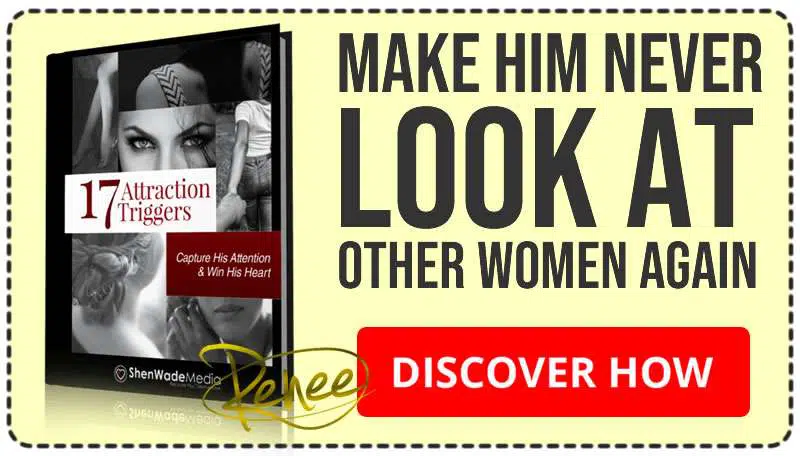Dealing with a breakup when you have anxious attachment is like pouring gasoline on a dumpster fire.
Breakups are traumatic enough, but if you add to that the nervous system of an anxiously attached person, it’s difficult to even function after a breakup.
This is partly because your self worth is tied to things that it shouldn’t be tied to. (If you are unsure of your own attachment style, take my specially-crafted quiz to find out now.)
In the aftermath of a breakup, an anxious person may blame themselves. (This self blame inflames their inner bias towards hanging onto their ex.)
Additionally, their self esteem will take a bigger hit than a securely attached person.
How do we know this?
Well, consider the internal dialogue of an anxious individual. At its core, your internal messaging tends to be: “I am unworthy of love and approval”.
Let’s take a quick look at how your anxious attachment has shaped your internal dialogue:
Do the quiz: What is my attachment style?
Fact: 54% of all women have insecure attachment styles and it affects their relationships daily. Answer the next 10 questions to discover what your attachment style is.
1. When it comes to relating to people in general…
I believe people are generally dependable and kind
I get attached to people easily and they often let me down
I don’t believe I can truly trust anyone
People will always come and go
2. To me, the word intimacy intuitively feels
3. In my relationship, I tend to constantly…
Worry that my partner will stop loving me one day
Feel repelled when my partner gets too intimate and close to me
Want to learn more about my partner without fear of judgment
Find faults in my partner
4. In my partner’s absence, I…
Look forward to seeing him again
Feel anxious and don’t know what to do
Feel incomplete
Feel free
5. In my most ideal relationship… (choose the one you feel strongest about.)
We would have our own lives & wouldn’t have to depend on each other
I would receive constant love and attention
We would be deeply connected above all else
To feel safe, I would want to have more control in the relationship
6. If a man that I was interested in started to banter with me…
I’d effortlessly banter back
I’d freeze and not know what to say
I’d redirect the conversation because banter is childish
7. If I suspect that my partner has been cheating on me…
I would rather not know about it
I’d ask them about it until they confess
I’d investigate it & find out as much as I can without coming to conclusions
I’d instantly get stressed out of my mind and become angry
8. When it comes to sex… I’d rather have
Casual sex with uncommitted partners
Intimate sex with a committed partner
I’d rather avoid sex.
9. If I share my deepest feelings and thoughts
Perhaps no one would care
Perhaps people may no longer love me
Perhaps I can resonate with the deepest feelings of others
I would never share my deepest feelings
10. If someone I’m dating suddenly becomes cold and distant…
I feel indifferent, even relieved as they’ll need less from me.
I feel like perhaps I’ve done something wrong or perhaps they’ve found someone new
I feel like I need to delve deeper into what is happening without feeling sorry for myself.
I feel angry and vengeful.
Great! Let's access your results & what it means for you..
We are analysing your personal attachment style results right now and preparing a comprehensive summary. On a side note, it is important to understand attachment styles as a sliding scale rather than a fixed set of categories. Here are the reason why…
1. Your attachment style is not fixed but rather plastic, meaning you can over time heal an insecure attachment style, just as you can create more insecurity in your attachment style if you hang around toxic people in your life. Having a sliding scale offers you a solid direction to move towards.
2. Attachment styles should be considered as secure or insecure attachment styles with levels of severity when it comes to insecure attachment. This helps you understand how your own attachment styles developed in the first place and what direction you need to take in order to heal from attachment style traumas. (We’ll explain this further in the first email you’ll get from us.)
3. Almost everyone with an insecure attachment style has multiple categories and patterns within that insecure attachment, (of course to differing degrees).
In other words, you don’t just have a pure anxious attachment style. That may be the predominant pattern in your nervous system, but there is also avoidant in there too when you’re nervous system is overloaded and sick of being anxious all the time. This is why it’s more important to see this framework as a sliding scale and not just a mere set of categories.
So your personal attachment style will fit along the scale you see below.
In order to get your personal attachment style score, please enter your best email address so that we can securely send this to you. (As well as give you $3,765 worth of coaching bonuses to help you cultivate secure attachment within yourself!)
And yes, we'll treat your email like it was our firstborn.
The Template of Anxious Attachment & Your View of Yourself
Sacred Heart University shares with us that early attachment experiences with our caregivers create a working model within us.
At the heart of these internal working “models” or prototypes are essentially patterns in behavior, and expectations of how others will treat us in adult relationships.
Think of your attachment “style” as a template.
Inside of the anxious attachment template are two main messages, or subconscious thought patterns. They are:
- I am not inherently loveable; and
- I can’t expect others to provide me with secure love. Instead I worry that others will reject me.
In other words, if you have anxious attachment, you adopted a negative view of yourself.
Yes, this is as maladaptive as it sounds.
It’s also as emotionally draining as it sounds, because anxiously attached people are more prone to depressive symptoms as well, which does not help to alleviate the pain of a breakup.
This negative view of ourselves sadly created a predictable but devastating pattern of negative emotions within us.
Those smarter than myself tend to call it “negative affect”.
Here’s a simple definition of negative affect:
Negative affect is a tendency to feel negative moods and emotions such as anxiety, worry, sadness, depression, anger, guilt, envy and shame.
This tendency makes anxiety-ridden individuals more prone to rumination.
What does rumination mean?
It means you keep thinking the same negative thoughts, and feeling the same negative feelings over and over again, to a point where it’s hard to pull yourself out of that.
If you’re going through a breakup right now, I am sure you resonate with these emotions.
You might obsess about the following things:
- Whether your ex hates you or not.
- If you reach out to your ex and they reject you, you might then swing the pendulum to hating your ex.
- Then you might convince yourself that what your ex thinks doesn’t matter at all (and that you don’t care about him or her.)
- You’ll obsess about whether they’ll come back.
- Whether you should delete and block them on all platforms.
- Whether you should contact him/her.
- What you did or didn’t say.
- What you did (or didn’t) do.
- What your ex is doing.
- What they’re thinking.
- What your ex’s real intentions are.
- What the heck kind of silly mistake that you made on that particular day in the past (and how you wish you didn’t).
- How your ex made so many mistakes.
- How your life is now in a shambles without your ex.
- How on earth you are ever going to move on if you can’t let go of thoughts about your ex.
- You’ll overthink about why you’re overthinking. And finally:
- You’ll find it hard to let go of the attachment to your ex.
And then in an attempt to “cope”, you may then change to thoughts like:
“Who cares about him anyway? He’s nothing to me!”
Here’s some recommended reading:
- How to Stop Caring About A Guy (& Everything & Everyone): 10 Genius Ways.
- Can An Avoidant Ever Really Love You?
The Anxious Attachment Style Pendulum Swing
…Don’t pretend the breakup doesn’t matter.
One thing you’ll eventually be tempted to do when you become sick of ruminating is to block things out.
You may want to act like you don’t care anyway. That’s what a lot of anxiously attached people do when they want to avoid grief, because their grief feels overwhelming.
This is what I call the anxious attachment style pendulum swing.
But I advise you to notice that you’re doing this, and understand that this is going to actually hold you back from processing the emotions of the breakup.
And in this article I’m going to help you process them.
First Things First
First let me say I’m sorry you’re going through a breakup. I, like many others out there, know how hard it is.
But more than that, I’m sorry you have to manage your anxious attachment on top of the breakup.
And I wanted to say, as someone who struggled with anxious attachment for a long time, that it’s not your fault.
Really?
Yes, really.
Not the breakup, not the anxiety, not the jealousy, the depression nor the self sabotaging.
None of it is your fault. Even if you know that you sabotaged the relationship – it’s still not your fault.
I know your internal voice sometimes says “but everything’s my fault.”
It’s not.
This (anxious attachment) is just your pattern.
You were given this pattern. You did not create it.
The pattern is here to “serve” you, because some adults didn’t serve you enough when you were a baby.
Make sense?
If not, let me explain a little more.
This ‘negative affect’ – the stress and negativity you constantly feel in your relationships is something you developed in order to over-compensate for your parents’ lack of reliability.
Before you say I’m placing too much of the blame on mothers, fathers, or parents in general…I’m not.
This is not about who’s to blame. This is about reality.
Reality is this:
Adults couldn’t get to you on time every time to soothe your distress, make you feel safe and provide for your hunger and emotional needs as a baby.
As a result, you inherited this tendency to overcompensate by keeping your nervous system overactive (enter stress, worry, guilt, etc.)
If you’re anything like I was, then you probably figured out long ago that there is something a little different about you.
You can’t quite put your finger on it, but you know that for some reason, you’re not as relaxed as others are when in a relationship.
Something’s just….always about to go wrong.
Also, you probably realized that you don’t feel as resilient under stress as other people are.
Whether it’s the fact that you can’t remain calm even when you’ve got a good thing going with someone, or the fact that you can’t help self sabotaging your relationships, you just know that you struggle in a way that “normal” (read: secure) people don’t.
So what we need to do after a breakup is give you a way to move towards a secure attachment system, despite the mess you might feel you’re in.
Yes that might sound hard, but that’s only if you haven’t created any momentum in the right direction to begin with.
But first, let’s talk a little bit about what you can expect to go through post-breakup as an anxiously attached person.
How Anxiously Attached People Respond to A Breakup
When you experience a breakup, your dopamine levels drop and your cortisol levels rise.
This is true for everyone who goes through a breakup, whether they’re securely attached or insecurely attached.
However, since securely attached individuals have already developed that “secure base” from which to navigate adversity early in life, they are more resilient under the stress of a breakup.
The same is not true for anxiously attached people.
Bowlby’s theory of attachment suggests that the early attachment experience of insecurely attached people left them with inadequate resources to cope under stress.
As I explained in my article on How to Let Go Of An Avoidant Partner when You’re Anxious, the thought of letting go brings with it intense emotions that feel insurmountable for an anxious person.
For anxiously attached individuals, their template causes them to over exaggerate life stressors, making them feel much more threatening, permanent and irreversible.
This sense of irreversibility is going to make you, the anxiously attached person, feel like clinging onto your ex is the only possible solution.
Essentially, you have no inner resources to regulate your emotions.
And when we talk about emotion regulation, we are talking about a skill that anxiously attached people didn’t have a chance to develop.
Even though a breakup is arguably a stressful life event for any human, most people exhibit resilience, because they have some level of emotion regulation strategies.
However, those who are anxious have experienced what is called attachment trauma, and due to inadequate responsiveness from your caregivers, this trauma was never resolved.
Unresolved trauma and inadequate responsiveness from mom and dad can cause us to be dysregulated emotionally.
(The anxious folk among us essentially have free access to all the negative emotions around the clock.)
This leaves us more vulnerable than “normal” to the negative psychological and physiological effects of stressful life events like a breakup.
But all is not lost. You are not that small and hopeless, even though I know you might feel that way.
Healing is on the horizon for you, I’ll do my best to make sure of that.
So in the next part of this article, I’m going to talk about your emotions during a breakup when you’re the dumpee as well as when you’re the dumper.
You’re Anxious And You Are The Dumper
Due to your anxious attachment “template” causing you to blow things out of proportion (ahem, experience every emotion 10x’ed and on steroids), you might break up with a lover more often.
Anxiously attached people aren’t always the dumpees of course. We are also the dumpers.
(Anxiously attached people will also tend to break up or threaten to leave the relationship when they move from a purely anxious attachment pattern to a disorganized attachment pattern. Ie: you become anxious-avoidant for a bit.)
But just because you broke up with someone, doesn’t always mean you were serious about it, were you?
You’re serious about the breakup for as long as you feel that sabotaging is a necessary way of coping with negative affect.
Remember this:
Anxiously attached people find it harder to deal with regular relationship conflicts in the first place, because they’re a stressor.
So sometimes our response to relationship conflicts or even external threats to a relationship is one of sabotage and pushing our lover away.
Instead of being able to calmly work through your emotions and trusting that there’s a solution, you respond by rapidly pulling away love and exiting the relationship.
Simply put, you’d rather risk the entire relationship than work through difficult emotions. (Because your partner is going to reject you in the end anyway, right?)
However, once you calm down, you get scared that you’re alone and you want your ex back again.
Enter the on-again, off-again relationship.
(Or if you’re with a secure person, one of two things will happen: they’ll either regulate your emotions for you and you’ll start to sabotage the relationship less, or they’ll just leave you because they know this relationship is toxic.)
However – if you’re with an avoidant, you’ll enter the anxious-avoidant trap.

You’re Anxious And You’re The Dumpee
You can probably imagine that if you’re anxiously attached and you’re the one getting dumped, that this will send you into an emotional death spiral.
- Your cortisol levels will rise.
- You will feel abandoned.
- You will feel like the emotions are bigger than you (they’re not. To use an analogy, lots of women feel as though the contractions of natural birth and labour might break their bodies, but they don’t. They actually work to push the baby through the birth canal! Similarly, your emotions are there to help you move to secure attachment. The emotions might just feel extremely burdensome if you’re anxious.)
Anxious People Always Assume The Breakup Is Coming
One of the hardest things about getting over a breakup with an anxious attachment style is the fact that the breakup is perhaps something you feared (and assumed) would happen long ago, probably at the start of the relationship.
Mainly because of the negative emotions that come with anxious attachment.
As an example, I’ll use myself 20 years ago (anxiously attached) versus my securely attached husband at the very start of our relationship:
I verbalized to him that I “knew” it would end from very early on in the relationship.
Conversely, he was sure it would never end.
Now you might just say that’s because he was more into me than I was into him, but that is not only untrue, it would also be grossly overestimating my actual value.
We were driving in his old banged up car from 1856 and our conversation went like this:
Me: “when do you think we’ll break up?”
Him: “why would we even break up?”
Me: “breakup is bound to happen.”
Him: “Why?”
Me: “I dunno.”
Him: “Well, when do you think we’ll break up?”
Me: “In 18 months.”
Him: “Well I’ll be glad to prove you wrong.”
We were still together 18 years later. Now it’s been almost 19 years at the time of writing.
And I’ve had 19 beautiful years to heal my anxious attachment. Ok, the healing process was not always beautiful. But I am grateful for the opportunity to heal.
As a way to pay it forward, I want to share with you some strategies on how to do the same.
No, you don’t have to be with a secure person in order to heal, although it helps.
You just need a few strategies and a strong resolve to become secure.
And it’s easier to put in the work to become secure when you finally decide to be done with the nonsense that is constant rumination.
It’s wasting your life away. It sabotages great things. It creates uncalibrated and unnecessary stress.
FYI, I’ve written several articles on how to heal anxious attachment and related topics. I’ll link them all here to you:
- How to Self Soothe Anxious Attachment In 2 Simple Steps.
- 12 Anxious Attachment Triggers: How to Recognize Them & Heal Them.
- How to Let Go of A Man When You’re Anxious (+ Advice If You’re Secure).
- Anxious Attachmet Style: Causes, Symptoms & 5 Ways to Heal.
And if you’re dating an avoidant, here’s a couple of relevant articles on that:
- 11 Genius Ways to Communicate to An Avoidant Partner.
- Dating An Avoidant Man: What It’s Like, What Do They Want & FAQ.
Do the quiz: Which of these 8 feminine archetypes am i?
Which one of these 8 feminine archetypes are you? Answer these 21 questions to discover which feminine archetype you are and how it positively and negatively affects every relationship you have. (Especially your intimate relationship with men.)
1. I would prefer...
Pleasure of the mind
Pleasure of the soul
2. True or false... A man and a woman should get along if they love each other.
True
False
I don't know...
3. I can often feel other people’s intentions from a mile away
4. In terms of dancing…
I love to dance and move my body
I find it a chore
5. Regarding sex...
I prefer he initiated sex with me
I’m more than comfortable taking what I want from him in the bedroom
6. In my current or previous relationship…
I enjoy how a man is so different to me
I get annoyed that a man is so different to me
We are so different I often thought I’d be better off alone
His differences make me appreciate and love him more
7. When I’m faced with something unknown, I trust
My gut feelings more than my thoughts
My thoughts more than my gut feelings
8. When I have to make a tough decision…
My brain always knows the better answer
My gut always tells me what to do
I will get all the facts and data and make a decision
Give it some time and the answer will come to me
9. Confrontations are...
To be avoided if possible
Can often work in my favour
10. I would prefer to be more...
Liked by others
Envied by others
11. In my old age, it’s more important to look back and know that
You’ve connected with others and created strong bonds
You’ve achieved all your dreams
You had truly cared about those around you
You ticked everything off of your bucket list
12. It’s more important to…
Pursue my own dreams and goals
Live cohesively in my tribe
13. Which is more true?
Conflicts serve a good purpose in my relationship
Conflicts are to be avoided in my relationship
Conflict will cause my relationship to die
With the right man, conflicts only strengthen our relationship
14. I believe in premonitions
True
False
I’m willing to entertain the idea
It’s a load of nonsense
15. How important are other people’s feelings?
Super important to me.
Little importance to me.
Other people’s feelings are none of my business.
16. When someone hurts themselves...
I rush to see if they need help
I’d rather see them help themselves
17. When a friend is upset, my first instinct is to:
Run away, I’ve been used by enough friends
Give them some space until they're ready to talk.
Suggest practical solutions to their problems.
Give them a hug and listen to them
18. The thought of newborn babies make me feel…
Very emotional and tender
Terrified
Happy and calm
I’m relatively indifferent to newborn babies
19. In social situations, I am...
The peacemaker who ensures everyone feels included.
The dominant personality who likes to lead.
The enigmatic figure who draws others in with mystery.
The observer who watches from the sidelines.
20. On a rainy day, I prefer…
The safety and warmth of my home
The excitement of a new exotic location
21. When I meet someone for the first time, I get a gut feeling whether I can trust them or not.
Very true
It usually takes me a while to figure this out
Amazing! Let's look at your results...
We are analysing your feminine archetype right now and preparing your personalised summary.
Here’s something interesting to know before moving forward…
Every single one of these archetypes has strengths and weaknesses. No matter how ego stroking it may be to identify with your archetype, know that it’s just a starting point.
It is your job to be aware of the strengths and weaknesses so that you can grow, evolve and become who you are meant to become.
Ultimately you want to become a full multi-dimensional human being. In order to truly become a high value individual, you want to tap into the value that every part of you has to bring to the table.
This feminine archetype quiz is one step along this journey to help you discover who you are, and who you will become.
So here is the next step.
Please enter your first name and email below so that we can safely deliver your feminine archetype results and send to you the extended explanation. (As well as give you $3,765 worth of coaching bonuses!)
And yes, we'll treat your email like it was our firstborn.
How to Heal Anxious Attachment After A Breakup
Obvious questions first: can anxious attachment be healed?
Of course it can.
The best place to start is by doing two things:
- Recognize your triggers. This entails noticing when the stress and anxiety is rising in your body, and catching it before it spirals into debilitating, crippling emotions that you feel you cannot come back from. (For some anxiously attached individuals, consistently noticing your stress and anxiety levels early is so crucial, it can even prevent depression and catastrophizing.)
- Employ what my husband and I call “anchors for secure attachment”.
These anchors are memories, movie scenes, meditation tracks, affirmations or music that you keep handy (perhaps on your phone.)
You go to these every time your anxiety shows up. The goal is to choose these as anchors whereby you get to use them to feel safe and secure.
So think about what movie scenes emulate secure attachment and safety to you. Are there any? If not, refer to my articles linked above for examples.
If movie scenes aren’t your anchor of choice, then try music.
Choose something grounded, calming and soothing.
Like this for example:
Or this:
How to Get Over An Ex With Anxious Attachment
As you try in earnest to get over your breakup, I ultimately I want you to remember one thing:
At times it may feel like yourself is all you have to get through this period.
But know that you can and will be enough for you.
You can always seek outside help whenever you wish, but you don’t need to feel like you are not enough for yourself during this period.
Once you’re through that grieving period and you’ve used my 2 strategies, you will come out more calibrated because you’ve got working strategies that you’ve used during your lowest moment.
You will be renewed and stronger, even though it doesn’t feel like it right now.
You need to make this promise to yourself that you will be there for yourself.
Over to You…
If you need a place to vent, feel free to use my comments section below. I always read my blog comments.
Let me know how you go with my strategies, and share with me any small success you experience.
Every positive move is a HUGE success, even though in your anxious mind, you might not think so.

P.S. CLICK HERE to check out my full article archives! Or you may greatly benefit from one of our highly popular paid programs, CLICK HERE to see what we offer right now.
If you want to be supported by a warm community of high value feminine women, then join our Facebook Group. (It’s free and so incredibly valuable!) CLICK HERE TO join thousands of other women in our “High Value Feminine Women” Community.
By the way, while you’re at it, connect with me on social media.
- Here’s my Youtube Channel The Feminine Woman.
- Here’s The Feminine Woman Facebook page…
- Here’s my Instagram Pages TheFeminineWoman
Renee is the founder of The Feminine Woman & co-founder of Shen Wade Media where we teach women how to show up as a high value high status woman whom easily inspires a deep sense of emotional commitment from her chosen man. She graduated with a bachelor of Law and bachelor of Arts majoring in sociology and psychology. She has been a dating and relationship coach for women in the past 15 years and together with her husband D. Shen at Commitment Triggers blog, they have positively influenced the lives of over 20 million women through their articles and videos as well as 10’s of thousands through paid programs through the Shen Wade Media platform.
Connect deeper with her work through the social media links below.

.png) 6 months ago
63
6 months ago
63










